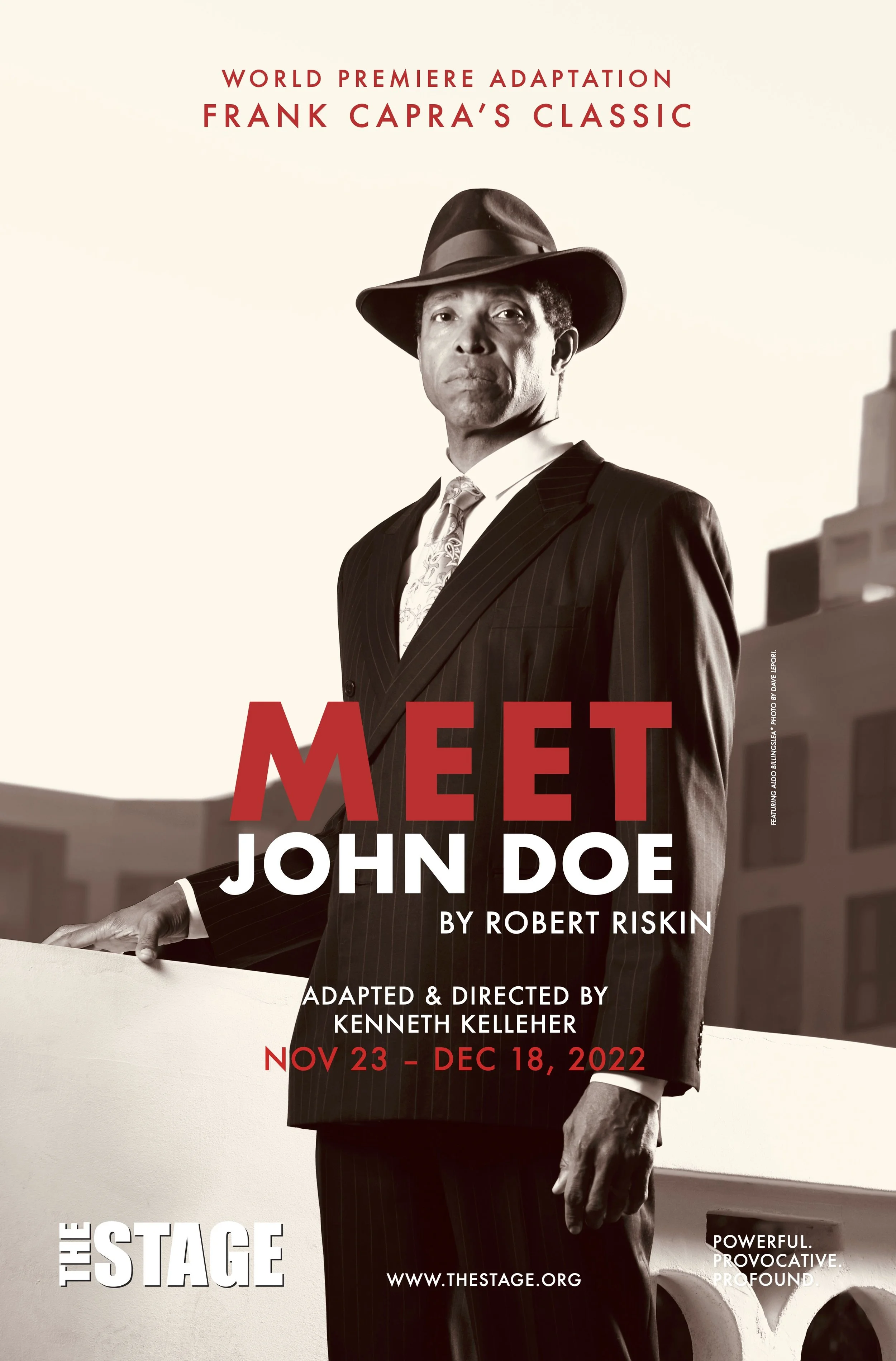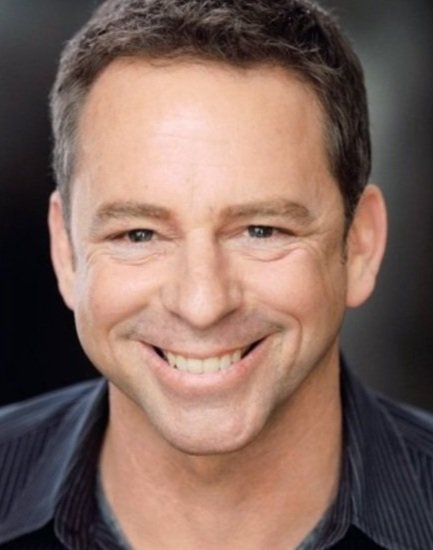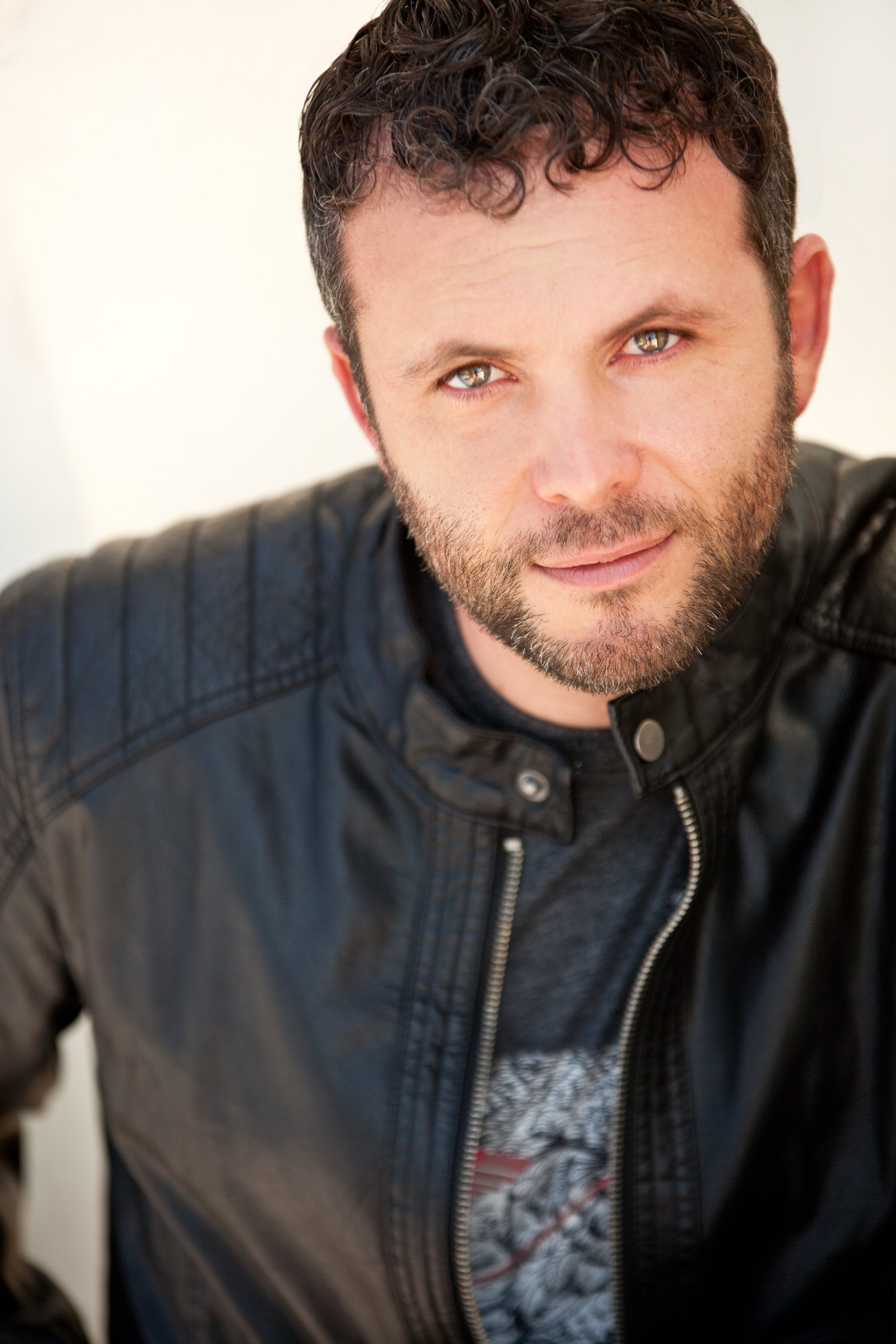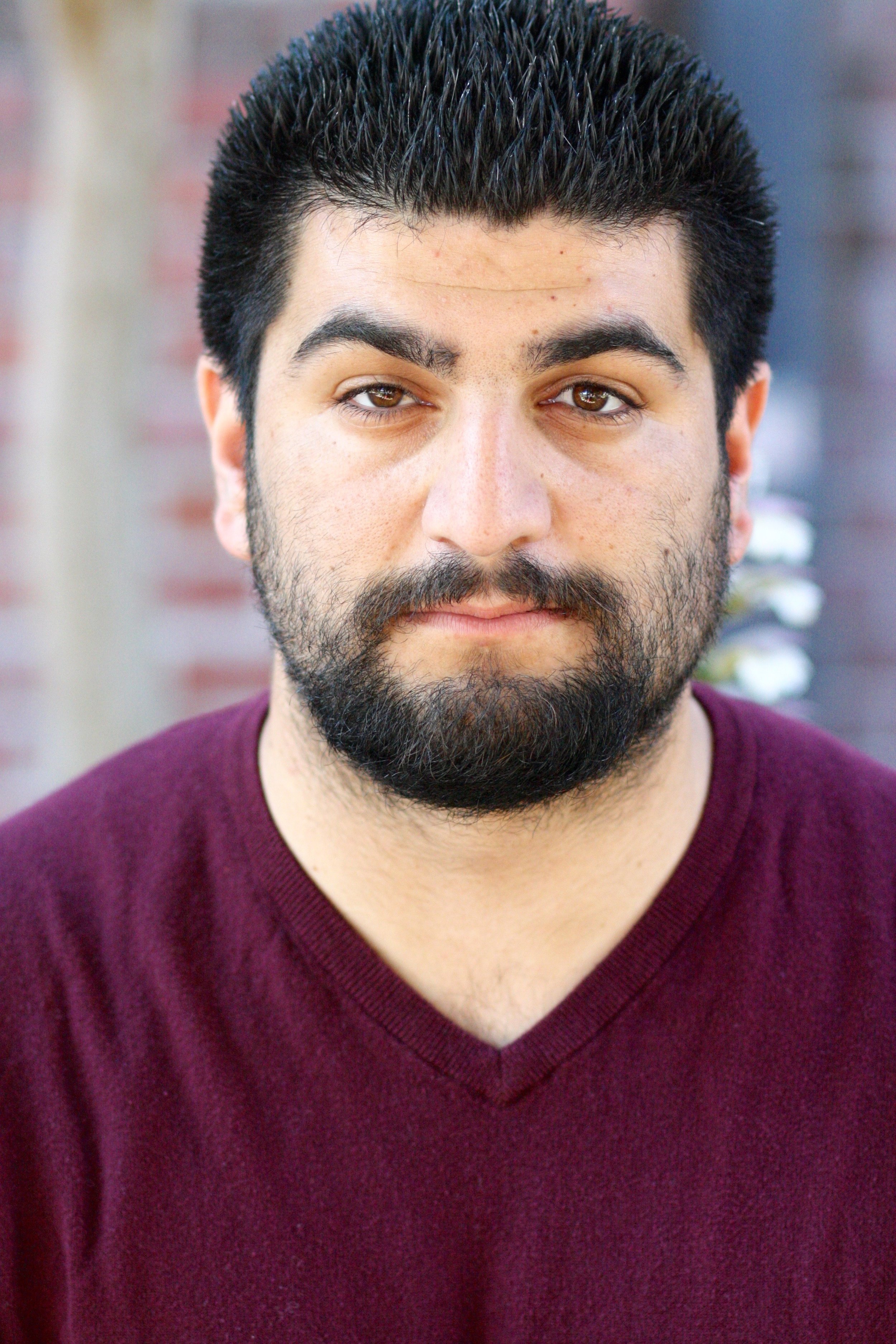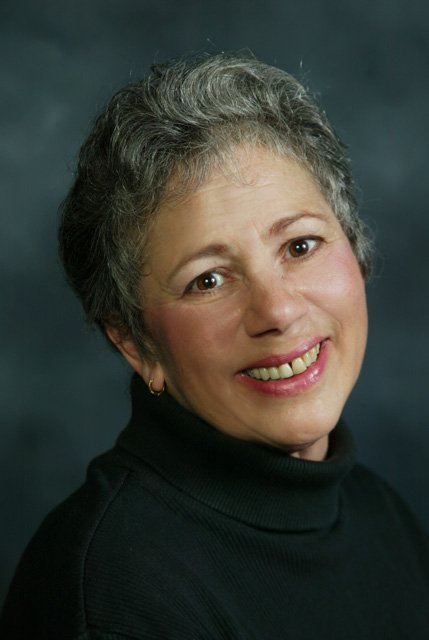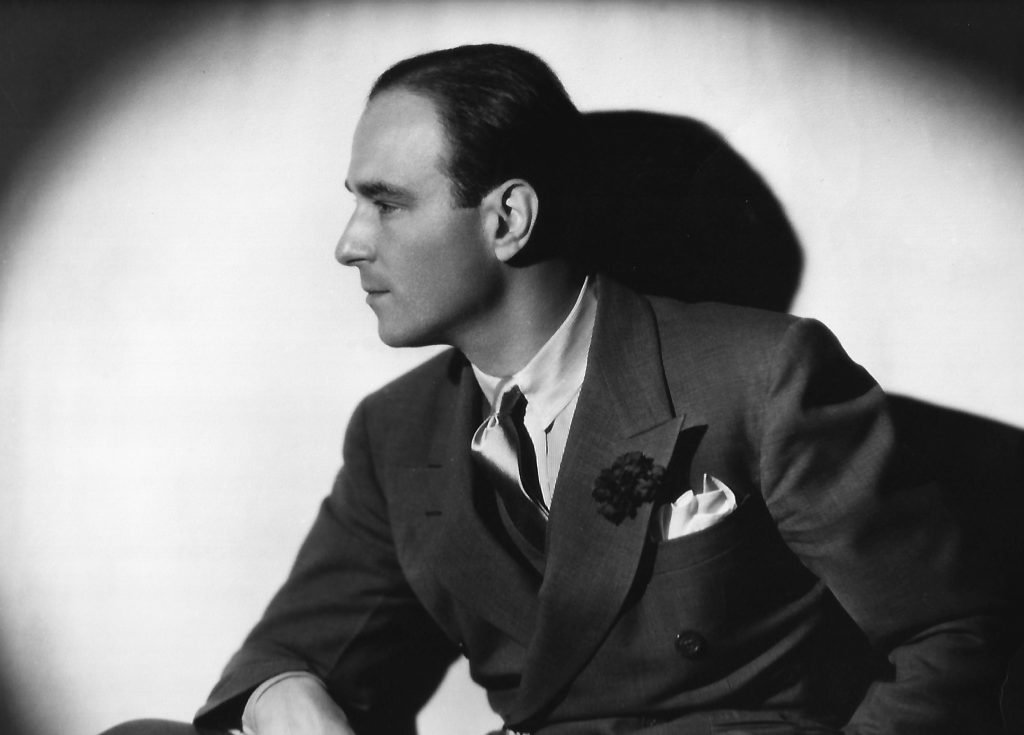MEET JOHN DOE
WORLD PREMIERE ADAPTATION OF FRANK CAPRA’S 1941 CLASSIC
A reporter's fake news turns a down-and-out derelict into a national hero and unknowingly makes him a pawn of big business. More relevant today, this story explores the societal / individual’s distrust and manipulation of government and other institutions meant to protect the people. MEET JOHN DOE, based on Frank Capra's beloved film, is a story about media, politics and the American Dream.
Special thanks to our Associate Producers:
Dave & Elizabeth Monley
“...the political and social ramifications are just as topical today as they were [eighty] years ago.”
“Loads of relevant statements are being made in this play about hope, journalism, poverty, community, social justice, race, common good and the power of the people...I think that Ruskin and Capra had the courage to look around them and on some levels write what they saw happening, as well as write what is possible. After a discussion with San Jose Stage founder Randy King, director-adapter Ken Kelleher had the vision to go a step further and also add race.”
“The story of MEET JOHN DOE truly resonates with the core of our mission: to expand community, forge creative partnerships, and challenge individuals in order to illuminate the human condition. When we set out 40 years ago, we wanted to deliver impactful, meaningful, and relevant stories to our community in order to ignite change. MEET JOHN DOE’s themes hold up a mirror to society – giving a vividly stark reflection of the extreme division in the current socio political zeitgeist. Frank Capra’s stories touch on the hope that is America – which truly springs from the collective heartbeat of us all. Can truth, goodwill, and civility of community overcome conspiracy and corruption? We are so excited to present this World Premiere adaptation by The Stage’s Associate Artist Kenneth Kelleher, a story more relevant now than when it premiered in movie theaters almost a century ago.”
“The strength of San Jose Stage’s world premiere ‘Meet John Doe’...is an all-star cast that unleashes a plethora of timely content creating fantastic food for thought.”
“Knockout performances...a perfect example of the Stage’s strength as a company. They showcase actors more than stage dressing, and the intimate, close-up setting of the room allows us to fully experience the power of a performance...”
“...an excellent new powerful version of the classic Frank Capra classic tale...”

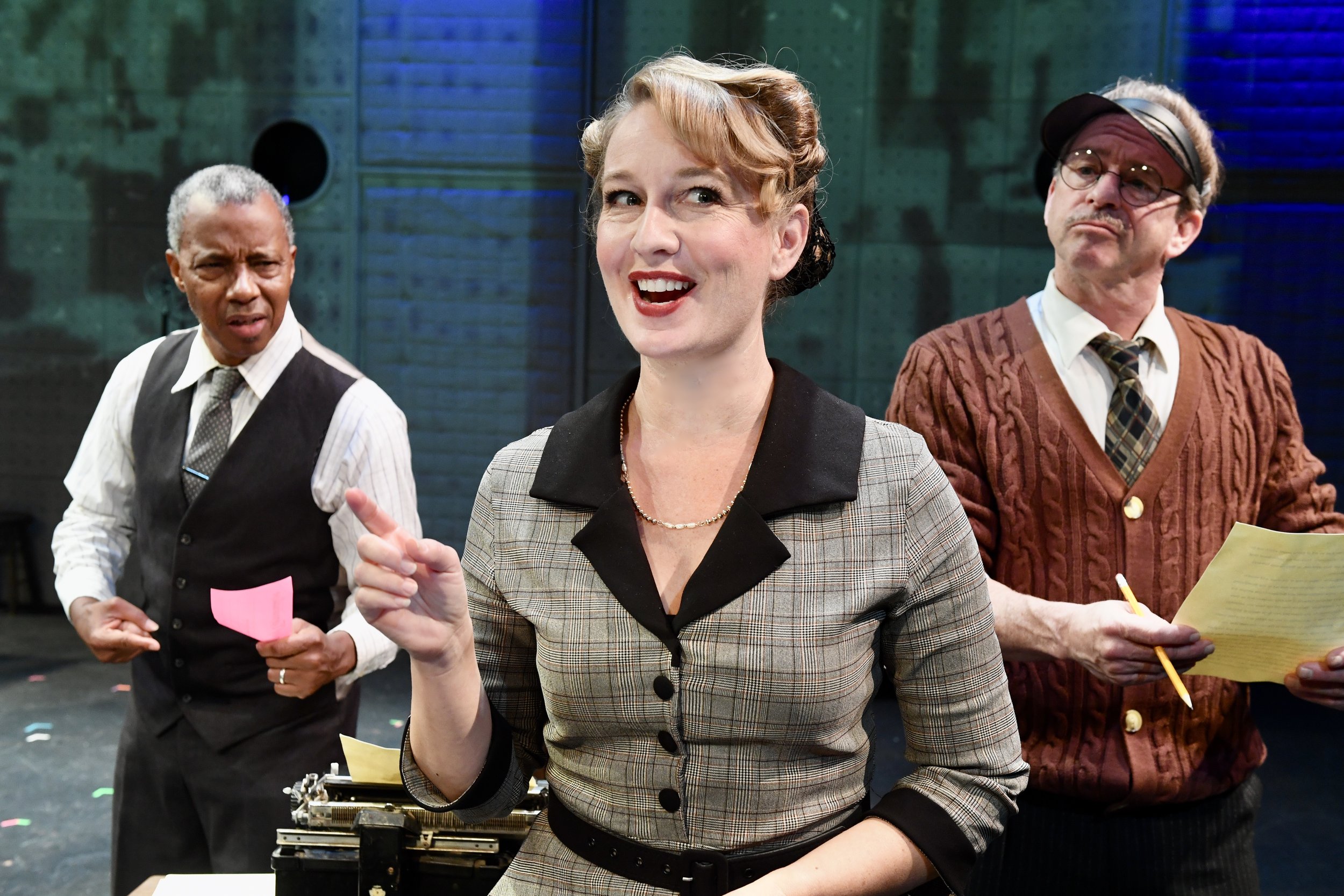


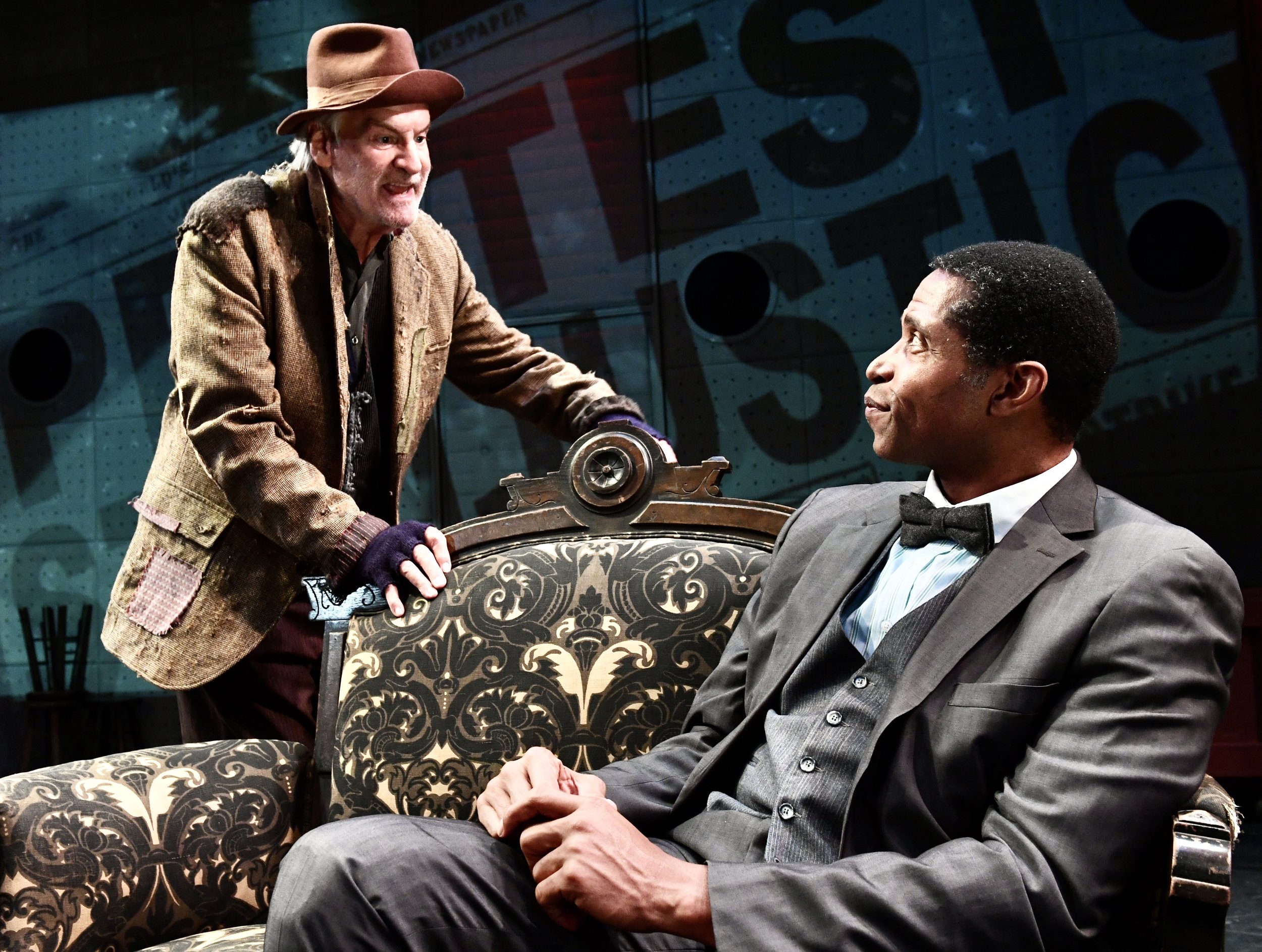
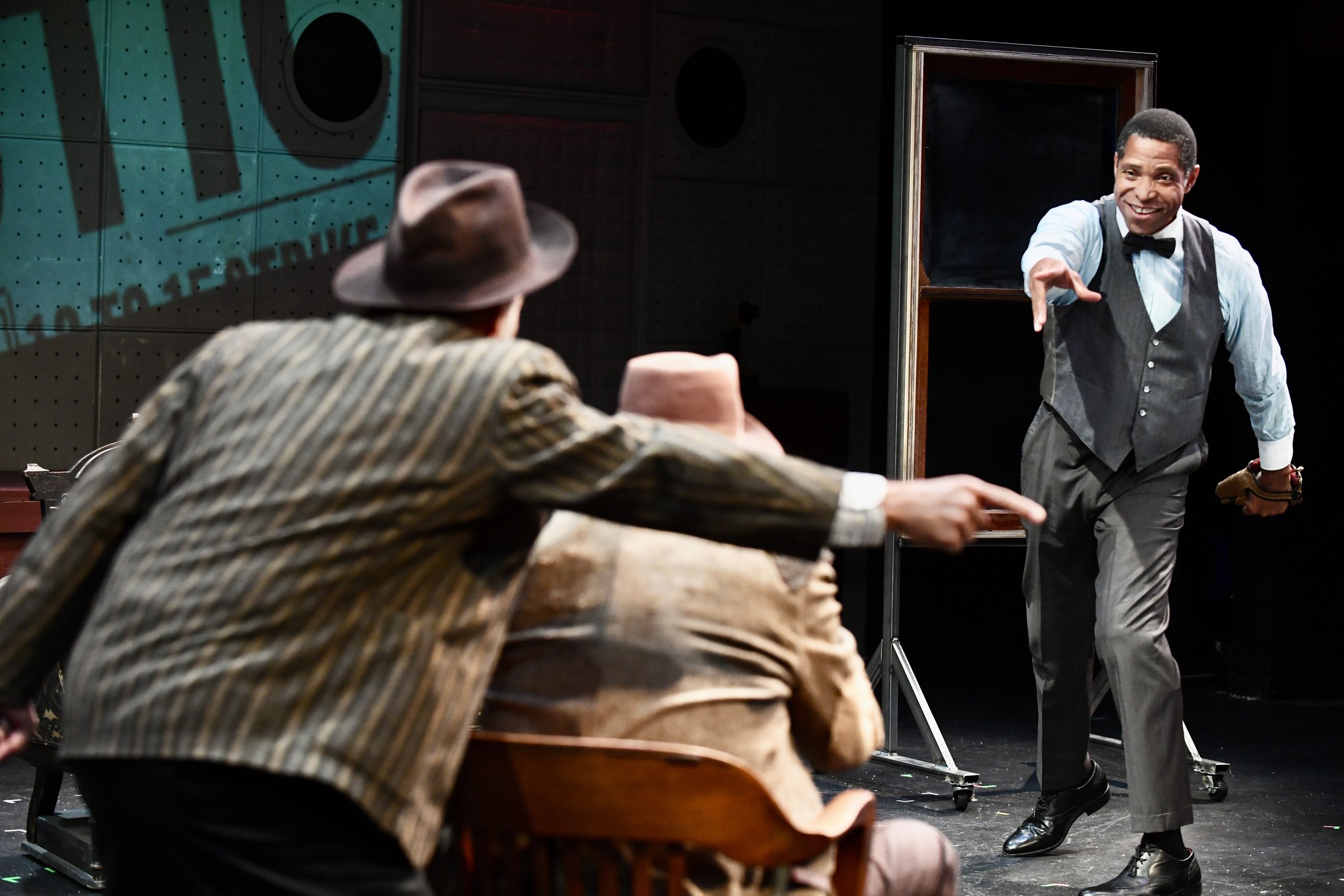
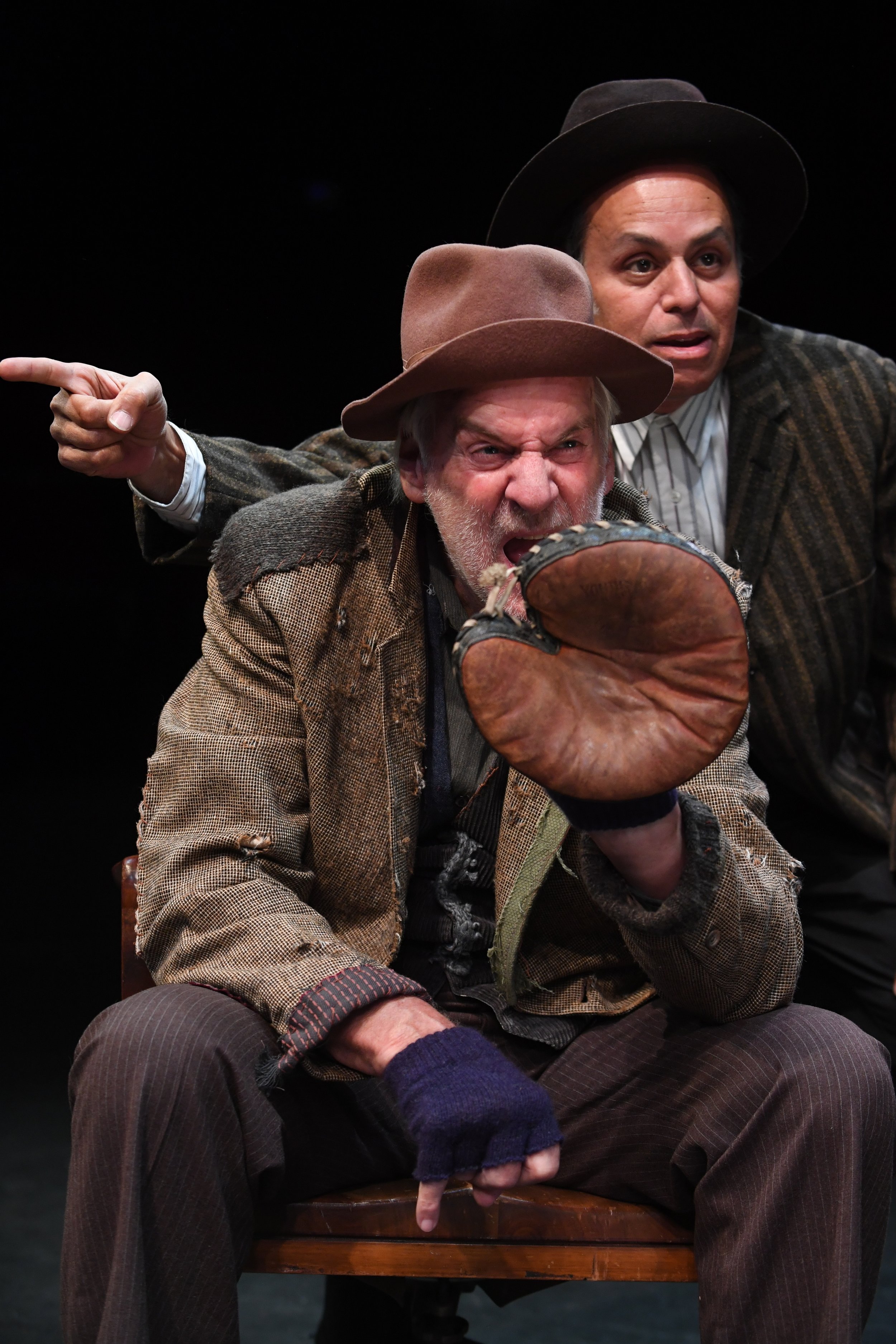
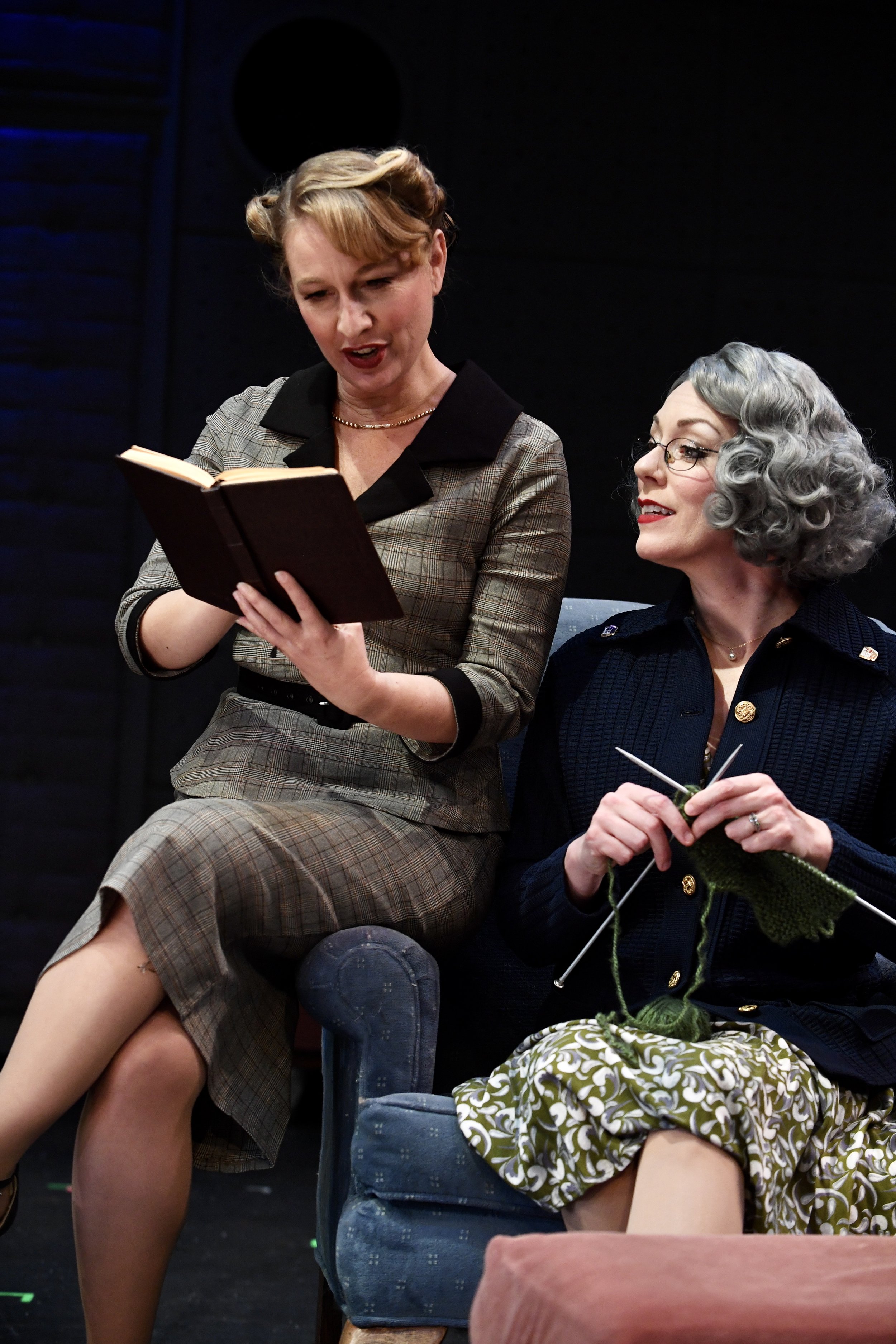
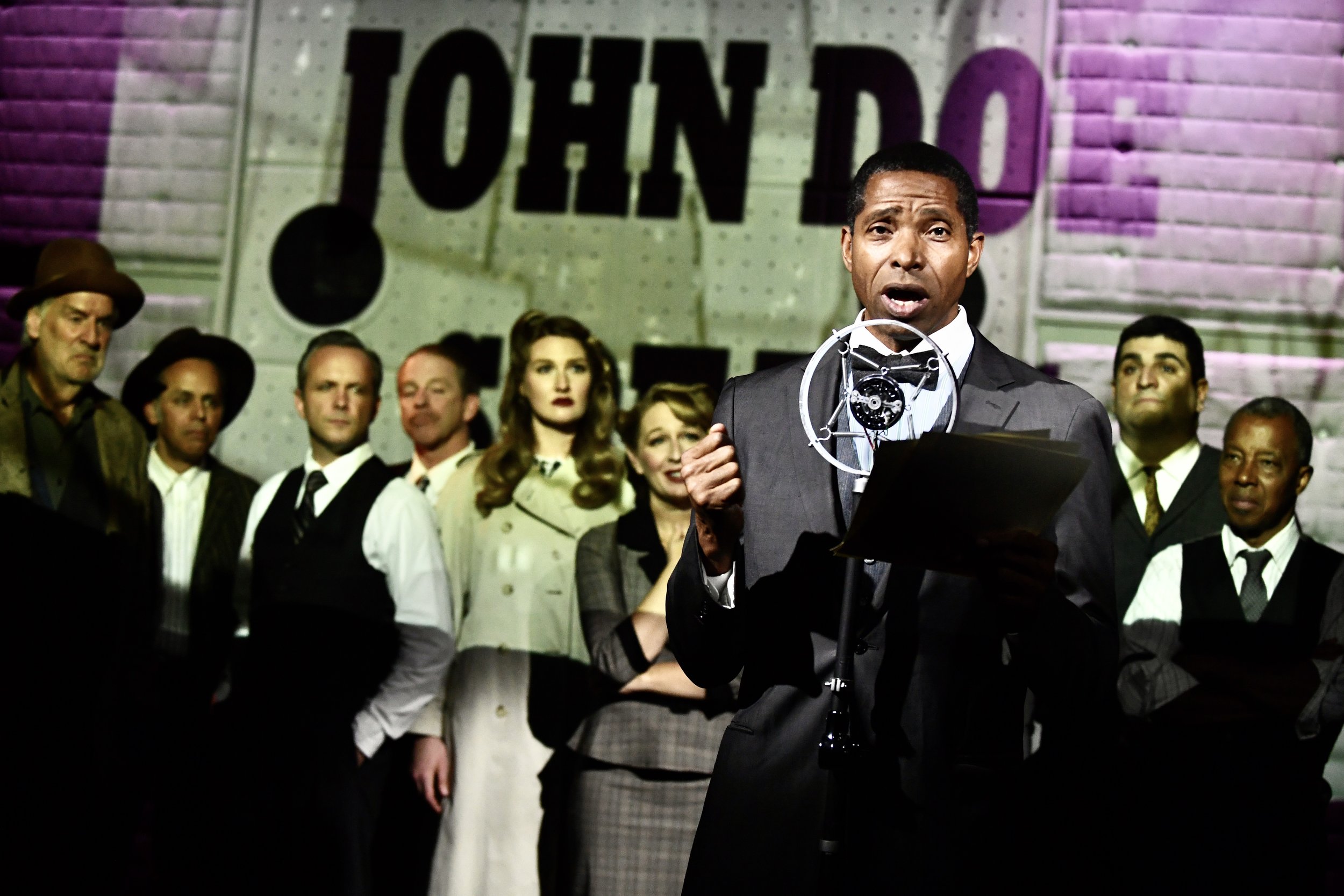
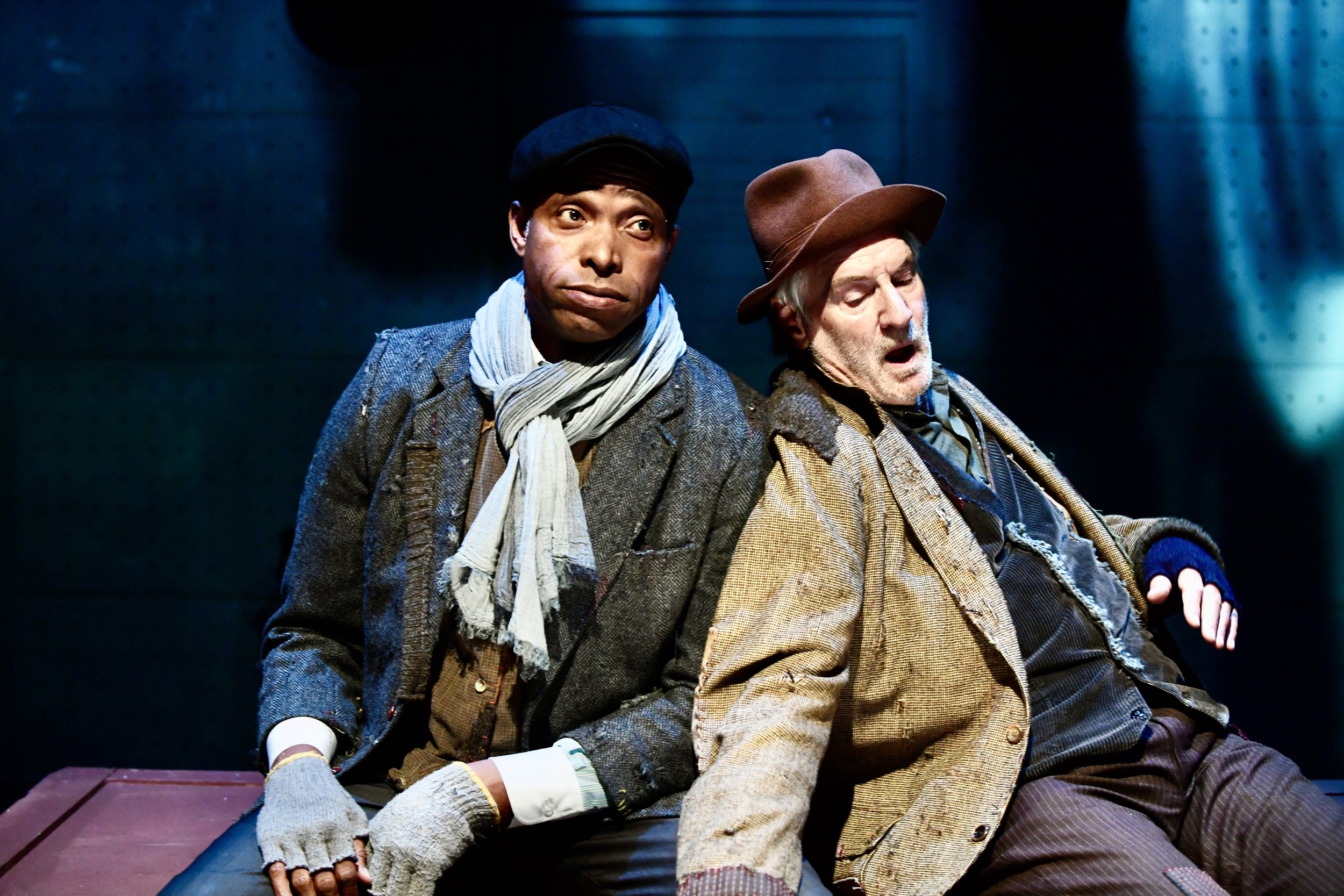
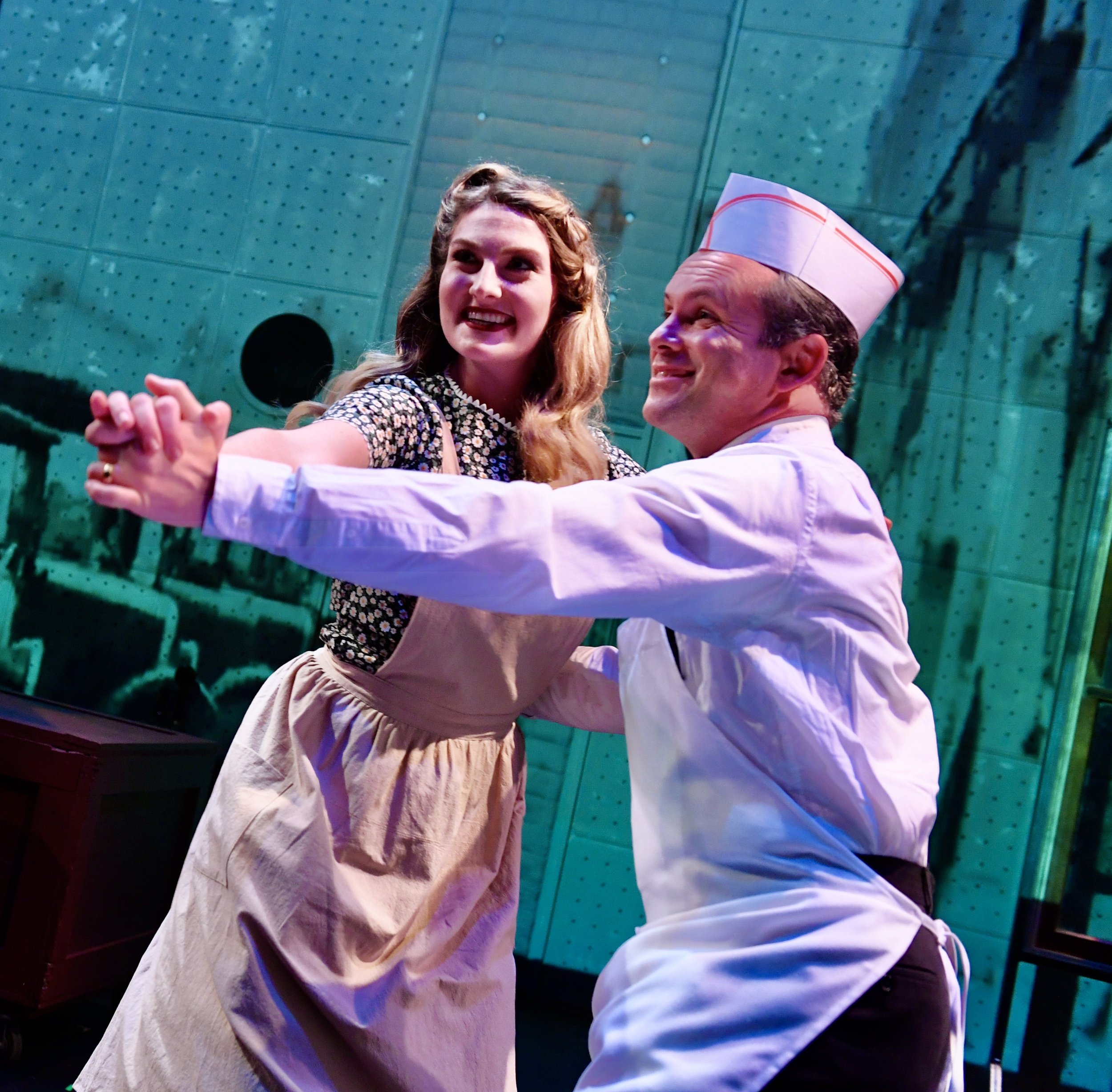
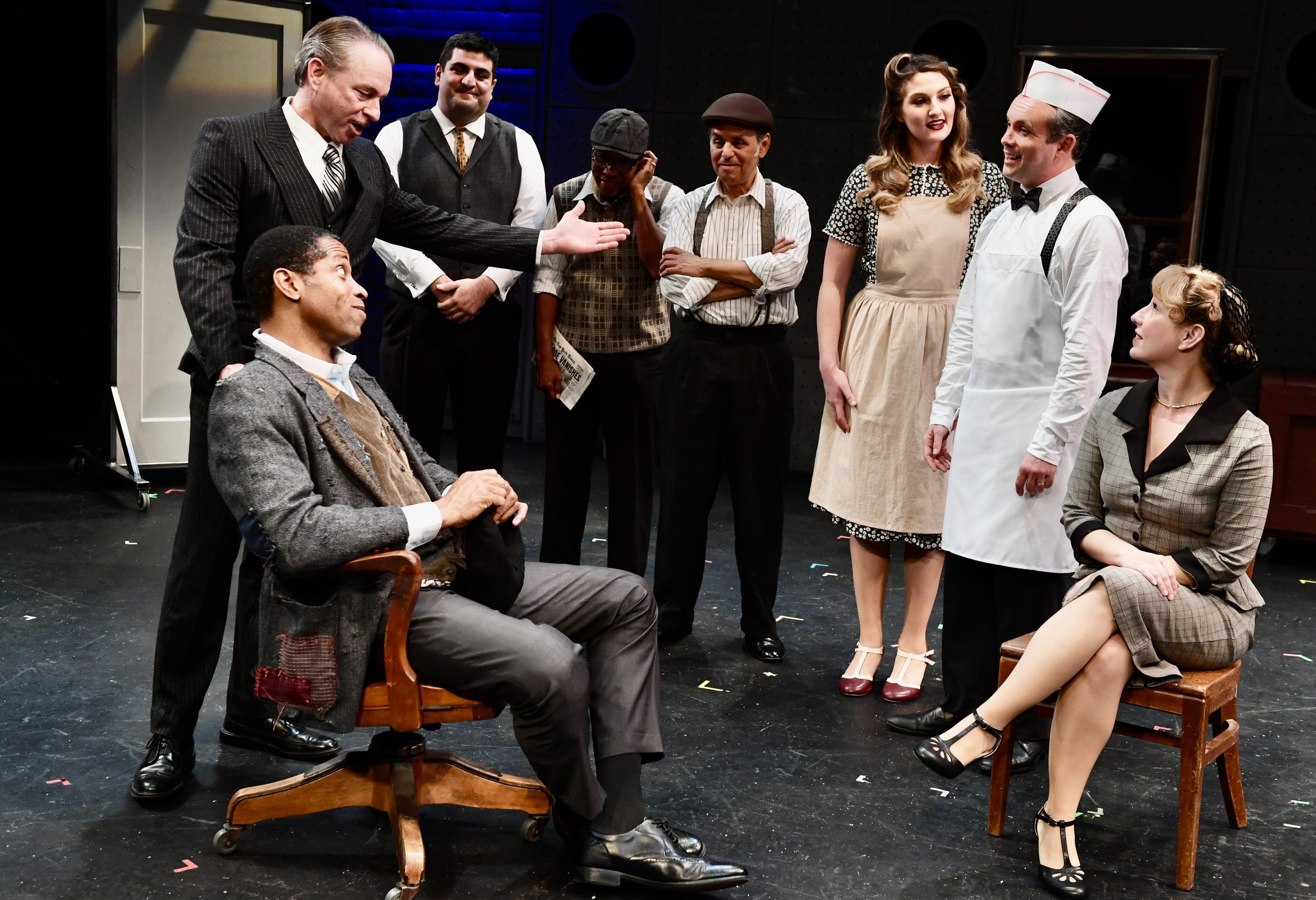


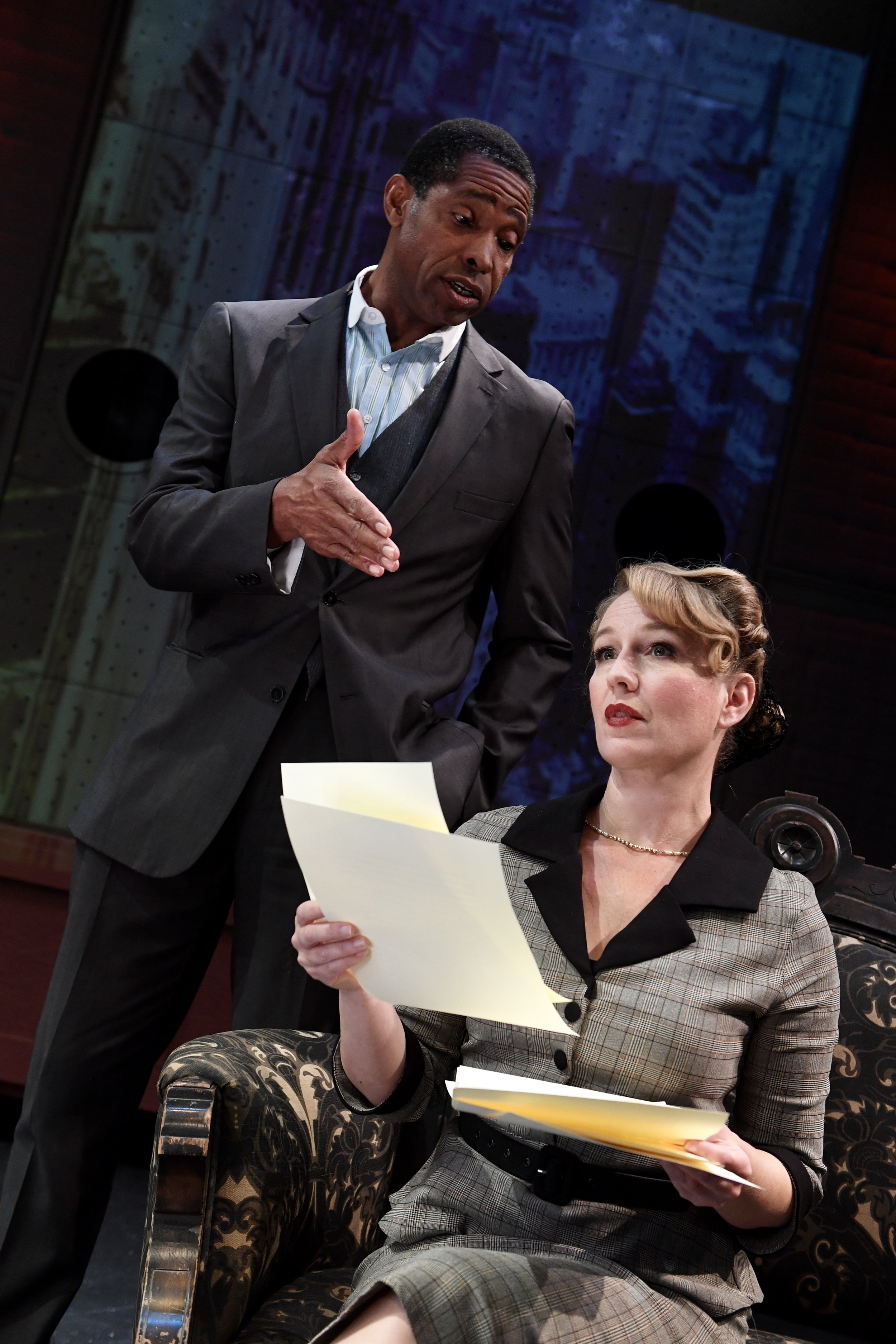
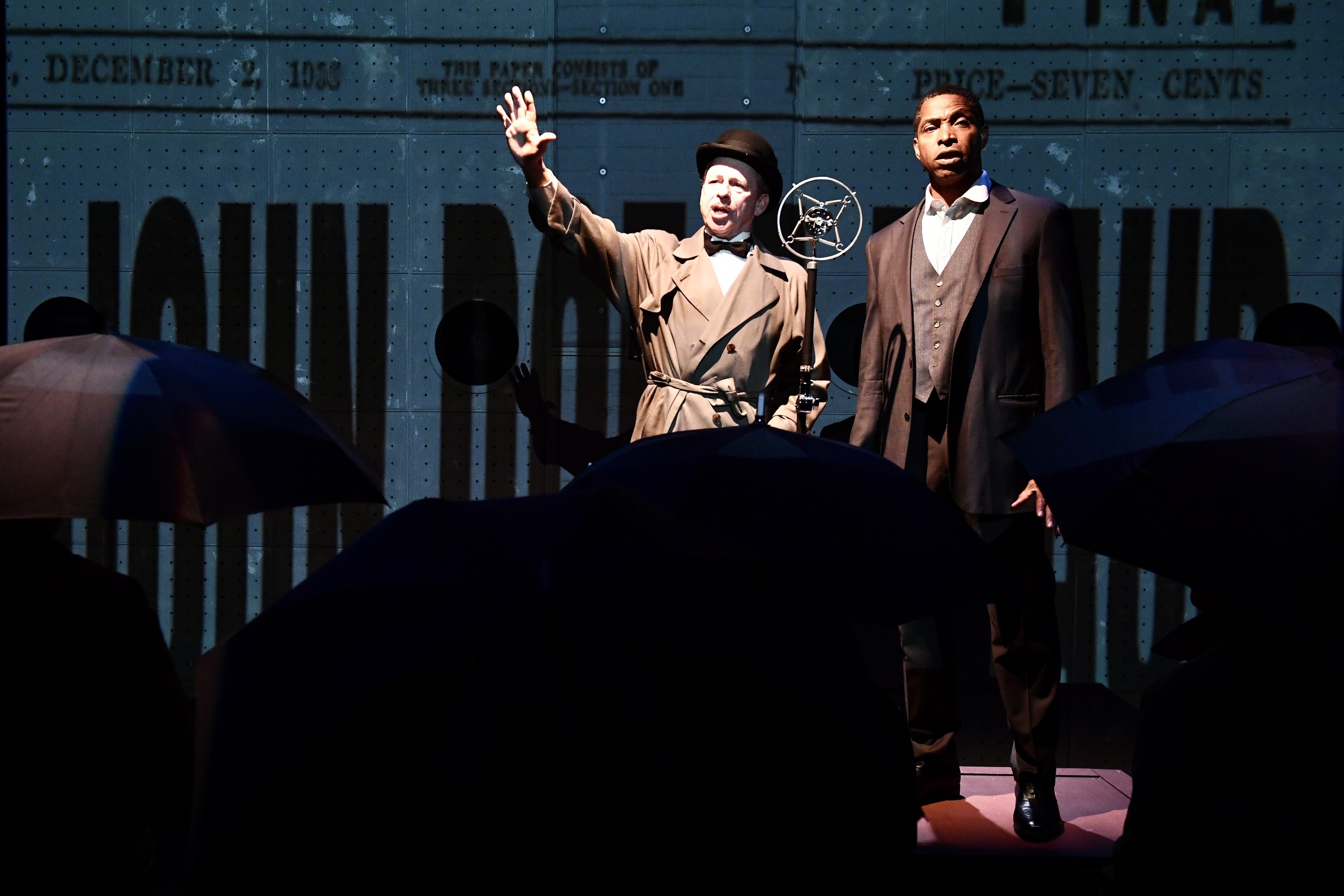
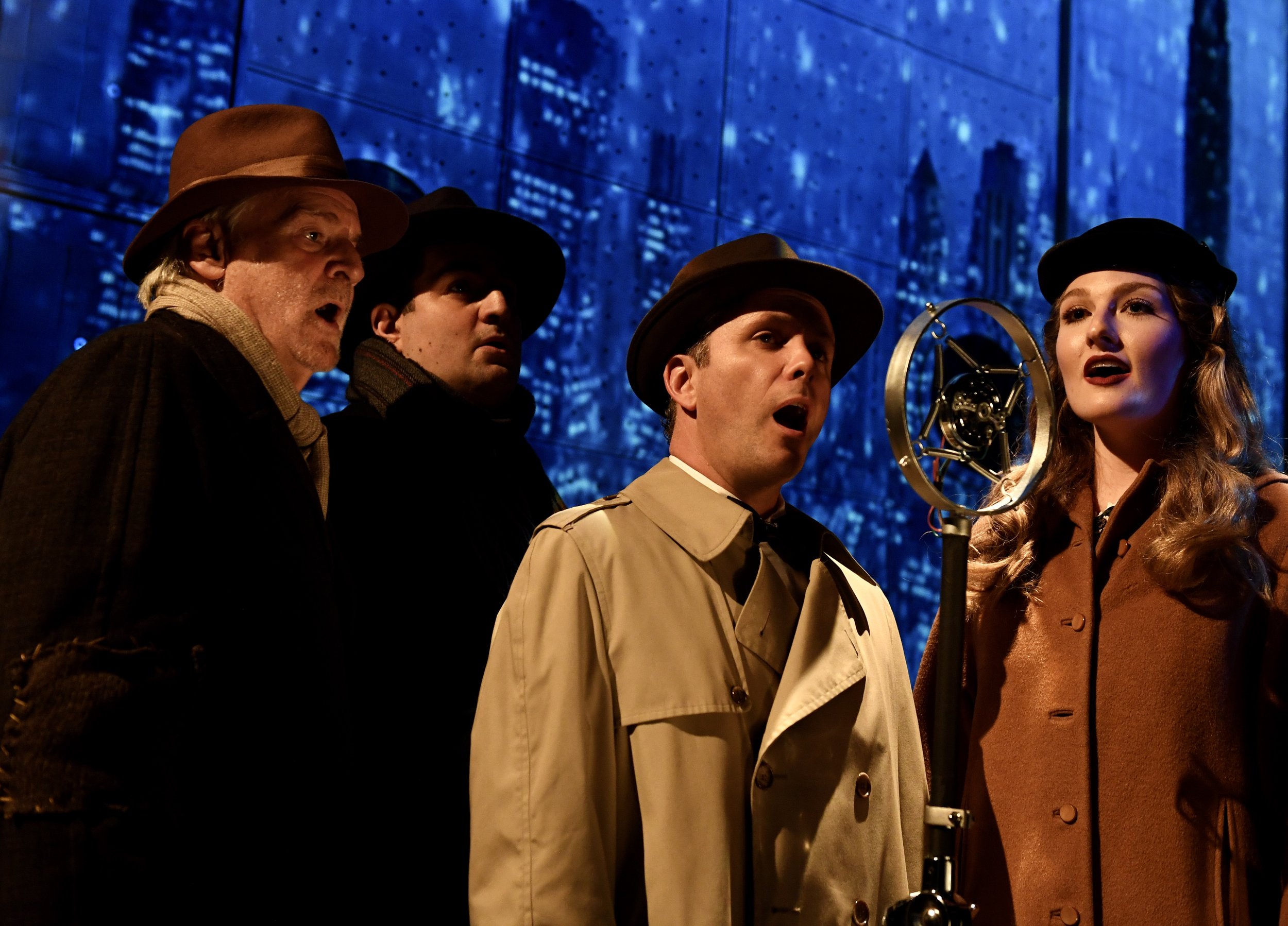

CAST
CREATIVES
Kenneth Kelleher | Director & Adaptor
Robert Pickering | Scenic Design
Madeline Berger | Costume Design
Maurice Vercoutere | Lighting Design
Marisa Whitmore | Sound Design
Garland Thompson Jr. | Projection Design
Jenn Trampenau | Props Coordinator & PRODUCTION ASSISTANT
TAZ STAHLNECKER* | STAGE MANAGER
MATT CASEY* | ASSISTANT STAGE MANAGER
VIVIENNE TRUONG | PRODUCTION ASSISTANT
ERR SHIRLEY-REUTER | PRODUCTION ASSISTANT & BOARD OP
About the Playwright
Robert Riskin (March 30, 1897 – September 20, 1955) was an American Academy Award-winning screenwriter and playwright, best known for his collaborations with director-producer Frank Capra.
Robert Riskin was born on New York City's Lower East side to Jewish parents, Bessie and Jakob, who had emigrated from Tsarist Russia to escape conscription. He and his two brothers and two sisters grew up speaking Yiddish. An enthusiast of the vaudeville stage, the teen-age Riskin took every opportunity to sneak into the theatre and catch the shows. He was a particular fan of the comedians who performed there, and he habitually transcribed their jokes into a notebook he carried with him. While still a teen-ager, Riskin took a job with a shirt-manufacturing firm, Heidenheim and Levy. The partners of this firm had a sideline business, investing in the new film industry. They sent the seventeen-year-old Riskin to Florida to run a production company for them. Riskin turned out one- and two-reel films until his enlistment in the Army during World War I.
At the end of the war, Riskin returned to New York City, where, in partnership with a friend, he found some success in producing plays for Broadway. Riskin began his career as a playwright, writing for many local New York City playhouses. Two of his plays, Bless You, Sister and Many a Slip, had successful runs. Riskin continued his Broadway career until the 1929 stock market crash and the Great Depression caused many theatres to close.
Motion pictures had just adopted sound, and writers were needed who could write dialogue and were experienced with stage work. Riskin recognized he had the credentials and seized the opportunity by relocating to Hollywood. He moved to Hollywood in 1931 after Columbia Pictures bought the screen rights to several of his plays. His first collaboration with director Frank Capra was the Barbara Stanwyck vehicle The Miracle Woman (1931).
Riskin wrote several films for Columbia, but it was his string of hits with Capra that brought him acclaim. Riskin received Academy Award nominations for his screenplays and stories for five Capra films: Lady for a Day (1933), which Riskin had adapted from a Damon Runyon short story; It Happened One Night (1934), for which he won the Oscar; Mr. Deeds Goes to Town (1936) with Gary Cooper and Jean Arthur; You Can't Take It with You (1938) with Lionel Barrymore and James Stewart; and Here Comes the Groom (1951) with Bing Crosby and Jane Wyman.
Riskin joined Capra in an independent production company in 1939, but they fell out in 1941.
In 1950, Riskin suffered a debilitating stroke which left him unable to write. Riskin had completed the screenplay for Half Angel (1951) and the story for Here Comes the Groom (1951) before the stroke. Ironically, Capra was assigned to direct Here Comes the Groom, and Riskin received a fifth Academy Award nomination for it.
Relationship with Frank Capra
From 1931 to 1938, Riskin and Capra collaborated on eight films as screenwriter and director. Riskin contributed to at least six other screenplays directed by Capra. These films were nominated for 29 Academy Awards, including eight nominations for Riskin and Capra, and won ten, including three for Capra and one for Riskin.
During this period, Riskin and Capra had what appeared to be a harmonious working relationship. Their personal relationship, however, was strained. Riskin was politically liberal, while Capra was a committed, conservative Republican. The protagonists of the Capra-Riskin films were described as “Capra’s Heroes”, when in fact they were more a product of Riskin's ideology and social conscience.
In 1939, looking for creative autonomy unavailable in the studio system, Riskin and Capra formed an independent production company, Frank Capra Productions. The partnership was divided 65% for Capra, 35% for Riskin. In 1941, Capra directed Riskin's Meet John Doe.
However, Riskin felt that Capra was taking all the credit for their films, including Riskin's share. Riskin came to resent Capra for this. This led to several confrontations with Capra during the production of Meet John Doe. According to an account by Hollywood screenwriter David Rintels (which was denied by Capra), Riskin brandished 120 blank pages in Capra's face and challenged: "Put the famous Capra touch on that!"
After completion of just one film, Meet John Doe, the association was dissolved. Riskin never willingly collaborated with Capra again.

